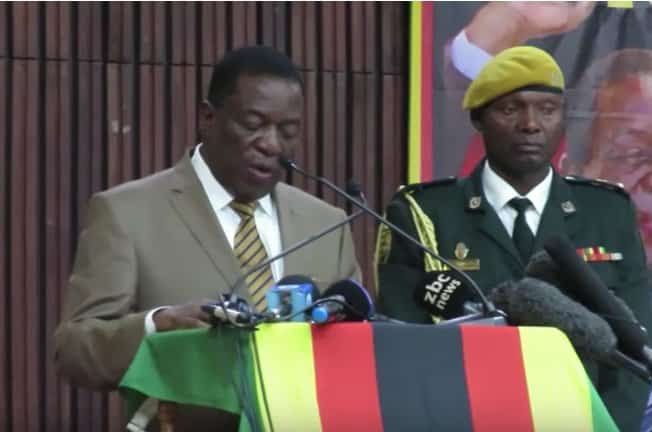By Byron Mutingwende
The Zimbabwe Trade and Investment Conference and Expo underway in Harare is meant to strengthen the country’s business relations with the rest of the world.
The event comes at a time when the government is activating, developing and reinforcing business relationships through engagement of both the local, regional and international investors.
In his address at the inaugural conference, President Emmerson Mnangagwa said the event was an opportunity for engaging and exchanging experiences on trade and investment opportunities in Zimbabwe, in pursuit of growing the economy to improve the standards of living of the citizenry.
Zimbabwe is not only blessed with abundant natural resources but it is also strategically located at the heart of Southern Africa. It provides a regional gateway through the North-South Corridor.
“Investment and opportunities exist across the entire spectrum of our economy and these can be major drivers of economic growth and sustainable development. Agriculture, mining, infrastructure development, and Special Economic Zones (SEZs) have a wide array of opportunities. I therefore urge both local and foreign investors to explore and exploit these investment opportunities and help set our country on a new trajectory path,” Mnangagwa said.
The country also has favourable climate and large tracts of arable land suitable for all-year-round activities. This provides immense opportunities for business in agro-processing across the entire value-chain, opportunities for farm mechanisation, manufacture of pesticides, herbicides, seeds, and irrigation development to spearhead Command Agriculture on maize production, soya beans, wheat, fisheries, wildlife and livestock production.
Winston Chitando, the Minister of Mines and Mining Development said the mining sector presents lucrative investment opportunities in mineral exploration and extraction; value addition and beneficiation as well as provision of finance and technical services.
“Many cities in this country were born out of mineral activities. These include, Zvishavane, Kadoma, Kwekwe and Hwange just to mention a few. Mining has nit only given birth to these old cities but new ones like Ngezi, which has become a large commercial hub. As an extractive industry, mining gives birth to manufacturing and other industries along the value chain. At the recent mining indaba here in Harare, a certain sector player proposed to set up an explosive company in Kwekwe,” Chitando said.
In Zimbabwe, there is a huge demand for drilling consumables. Most of the mechanised mines use conveyor belt, chemicals and foundries. In about two years, the minster said there would be a number of lithium processing companies. One of the leading plants of lead batteries manufacturers in Africa will be set up in the country. Companies like Turnall and Tube and Pipe employed thousands of people since they processed asbestos. There are plans to explore coal-bed methane to produce fertilizers and energy.
The ease of doing reforms undertaken by the government will remove bureaucratic structures, bottlenecks, policy overlap and unnecessary delays in decision-making. Government has adjusted the 51/49% indigenisation threshold with effect from 7 December 2017. The policy will now only apply to diamonds and platinum.
Ambassador Simon Khaya Moyo, the Minister of Energy and Power Development said Zimbabwe requires about 1600MW per day yet internal power generation is in the order of about 400MW. The power deficit in the SADC Region is about 8 200MW and the suppressed demand amounting from the shortfall is currently put at about 16 500MW.
“As the economy turns around and grows in terms of new mines, factories, businesses, irrigation and houses being developed, the effective demand for electricity shall certainly increase. We shall thus require new power generation stations and new transmission and distribution lines to take power from the new power stations to places where it is consumed or used,” Khaya Moyo said.
He said there was need for considerable investment in both energy and power given that energy is a critical enabler to economic development and given Zimbabwe’s enormous economic growth potential. The Electricity Act provides for private sector investment in power generation as Independent Power Producers (IPPs).
Retired Air Chief Marshall Perrence Shiri, the Minister of Lands, Agriculture and Rural Resettlement said the sector has a critical role in the economic transformation of the country.
“Agriculture is the mainstay of the economy. It provides a strong base and foundation for economic transformation. Notwithstanding other sectors such as mining and manufacturing, in agriculture we regard economic transformation as being synonymous with agricultural transformation. This is because agricultural transformation, in itself, is a necessary and near-sufficient condition for economic transformation,” Shiri said.
President Mnangagwa said to ensure equity on how investment opportunities are distributed the government is dealing with corruption.
“To that end, Government has empowered relevant institutions to deal decisively with all forms of corruption at all levels without fear or favour. We are committed to act with urgency and purpose in this anti-corruption campaign. We have established specialised and systematic courts, which deal with corruption crimes with no unnecessary delays or hindrances,”Mnangagwa said.
Institutions such as the Judiciary and Legislature remain ready to ensure full protection of investments made within the confines of Zimbabwean laws. There are promises for free, fair and credible elections.
